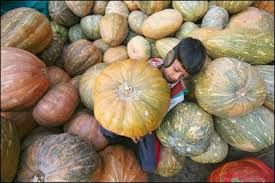Financial experts feel that controlling food inflation in India is a tough task.
 “Price hike is the only constant”, goes a famous adage.
“Price hike is the only constant”, goes a famous adage.
When prices are rising, it essentially means the value of the currency is eroding, thereby losing its purchasing power.
Called inflation, this is the biggest deterrent to any financial planning and drag on your personal finances.
From the finance minister, who has to manage the nation’s finances, to a homemaker who manages the finances at home, inflation affects everyone in one way or the other. Inflation has an effect on all aspects of life and calls for a proactive approach to bypass its impact.
Here is a look at six different types of inflation and how they affectyour financial planning.
Food Inflation
The cost of food has constantly been on the rise, pinching the pockets of average buyers. Everything from foodgrain to dairy products and from fruits and vegetables have witnessed a price increase over the years.
As per the data released by Ministry of Statistics and Program Implementation, the cost of food in India has increased 5.11 per cent in April of 2015 over the same month in the previous year.
Financial experts feel that controlling food inflation in India is a tough task, as the country is reliant of the monsoon rains for agricultural growth.
Moreover, the policy of raising import tariffs in times of surplus and implementing export bans during shortages has not helped as it has resulted in a closed food economy.
Food inflation gnaws at the very core of the common investor’s finances by causing his monthly household expenses to balloon.
This reduces the disposable income and may affect monthly payments and liabilities if adequate buffer has not been factored in while taking on those liabilities.
Housing Inflation
Housing is one of the three basic necessities of life.
Everything from raw materials to labour and production costs have increased multifold, leaving builders with no option but to escalate the price of real estate projects.
Real estate prices have deflated in the preceding two years because of market disinterest and unsold inventory.
Reserve Bank of India data show that the Residential Property Price Index, which measures housing inflation, has been declining since the start of 2014.
Consequently, squeezed for margins, builders have attempted to hang on to prevailing property prices and negotiating downwards only when they are amply sure of the buyer’s seriousness.
As a result, property buyers have been confronted with higher purchase costs.
This is an indirect effect of inflation on property buyers’ plans.
Even those who have been planning to build their own home on a self-owned plot of land are now being forced to shell out more money as compared to the same period last year. However, unlike food inflation, the price index of real estate has increased over the longer run, giving good returns for property sellers in the future.
Medical Inflation
The government has embarked on a serious drive to curb the skyrocketing medical costs in India.
Restrictions on drug price rise and technological innovation are part of these.
However, this will take some time for the benefits to trickle down to the average individual.
For an average household, medical and hospitalisation bills continue to streak upward, straining home budgets and gnawing away at savings each time there is a medical emergency or hospitalisation.
These expenses are only expected to inflate as you grow older, and health insurances, which are a must today, are not getting any cheaper.
Only radical surgery of the healthcare industry, aided by targeted health reforms and subsidy interventions by the government, can provide a semblance of succour to the common man.
Retail Inflation
Retail inflation affects every product and service available in the retail market.
From an increase in service charges to increasing prices of lifestyle goods and services, inflation impacts every individual as his basket of goods to be purchased day in and day out are bound to cut across a vast swathe of products and services that have seen persistent inflation.
Retail inflation is measured by the Consumer Price Index which is calculated by taking a weighted average on a specific basket of goods and services.
Currently the CPI witnessed an increase to reach 120.70 index points as on April 2015 up from 120.20 index points in March2015.
Like food inflation, retail inflation corrodes your purchasing power by dipping into your disposable income.
If its effect on your monthly budget is not monitored periodically, it can prove to be a nasty surprise when you least expect it.
Lifestyle Inflation
Ten years ago, a simple Sunday exercise to watch a movie with your family of four would have set you back by Rs 200.
Today, with rising inflation, the cost of one ticket for a weekend show is Rs. 200.
Throw in lunch and your bill for the weekend is easily tenfold what it was a decade ago. That is the effect of inflation -- specifically lifestyle inflation.
Beit an imported paperback, the latest gadget or your favourite pizza -- no category of lifestyle products have been spared the withering influence of lifestyle inflation, causing your monthly entertainment and comfort spends to balloon.
As our income increases, our lifestyle too changes -- a bigger house, branded clothes, a more expensive car among other things become de rigueur.
These additional expenses too are bucketed under lifestyle inflation.
Education Inflation
When everything from school stationery to tuition fees to transportation charges mount, the overall cost of educating your child swells.
During phases of increased inflation, the RBI is forced to up the repo rates, which in turn increases bank base rates for retail loans, including education loans.
As a consequence, you would be shelling out more in terms of interest outgo on the education loan you would take to give your child quality education.
Suppose a degree today costs Rs 500,000 per annum in tuition fees.
Considering that education inflation is around 7-8% per annum, the same course would cost almost Rs 20 lakh (Rs 2 million) in 20 years.
So, if you are saving for your child’s higher education, ensure that you account for inflation.
Inflation and financial planning for your family
Considering all these, your expenses increase not just on account of the rise inprices, but also due to an aspiration for a better lifestyle.
Although we calculate inflation at a rounded up 5-6 per cent per year, in fact, inflation for different segments vary.
Also, since the rise in prices are different for different families and is dependent on their finances, a common number that is applicable to all may not work always.
For this very same reason, the financial plans made by your colleague or friend for his family may not work for you.
A good practice is to identify how inflation affects your family specifically and factor only that into your financial planning.
BankBazaar.com is an online marketplace where you can instantly get loan rate quotes, compare and apply online for your personal loan, home loan and credit card needs from India's leading banks and NBFCs. Copyright 2008 www.BankBazaar.com. All rights reserved.










 © 2025
© 2025